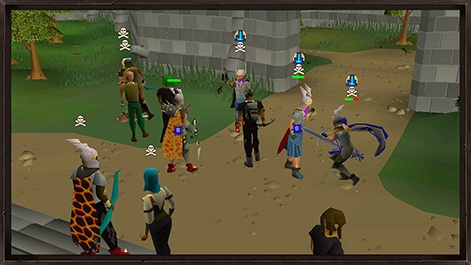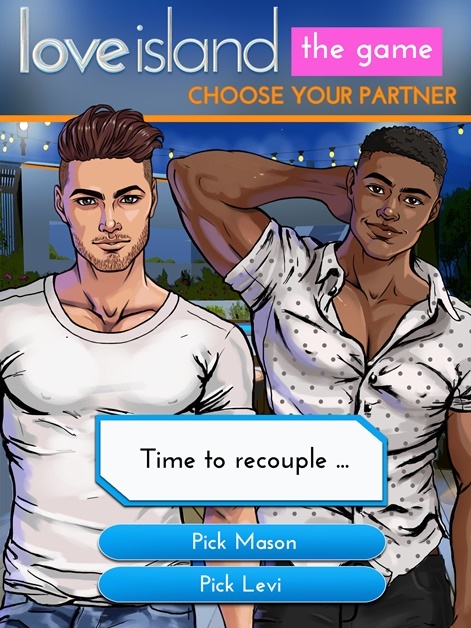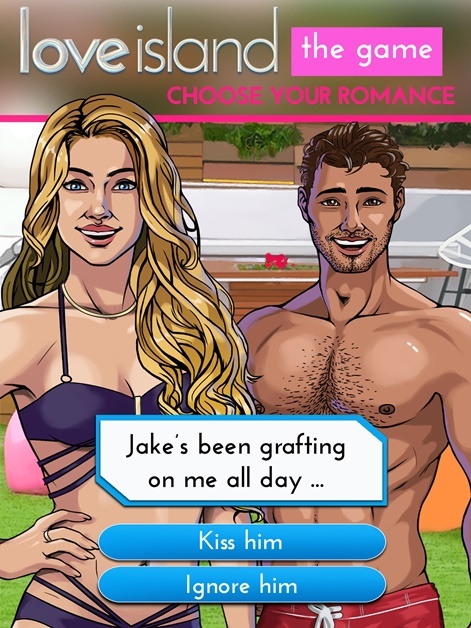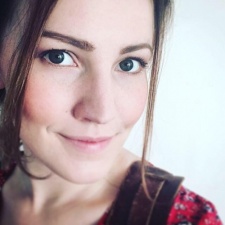The games industry plays host to an excellent cast of colourful and diverse individuals, from artists and coders to narrative designers and studio heads.
The skills to pull off these roles, however, are complex and differing with each position requiring mastery in its field.
As such, seeing a game come together is a beautiful thing akin to a puzzle as an overall picture becomes whole.
To highlight some of the brilliant work that goes on behind the screen, and help others who may be keen to dive in, PocketGamer.biz has decided to reach out to the individuals who make up the games industry with our Jobs in Games series.
This time, the spotlight is on Fusebox's narrative designer Sarah Longthorne. While currently working on Fusebox's Love Island Season 2, you may also find some her dialogue in Jagex's RuneScape and Block N Load.
PocketGamer.Biz: Can you tell us about your current role and what it entails?
Sarah Longthorne: I’m a narrative designer at Fusebox Games. I’m currently working on the Love Island mobile game, based on the hit reality TV series.
My role involves working as part of a team of writers to come up with and write the storylines for our game. Being a choice-based visual novel, there’s also a fair amount of game design thrown into the mix, but the biggest part of what we do is writing.
I’m currently beavering away at season two, which comes out next summer, as well as the reunion episode for season one.
How did you first get into games and how did you progress into this role?
I started my games career working as an email marketing coordinator at Jagex, home of RuneScape. I’d come from a marketing background, so that was the natural route for me.
Once I had my foot in the door, I could prove myself and move into the role I wanted, which was and had always been writing.
I worked at Jagex for two years in total. Not long after joining, I reached out to some of the senior devs and narrative designers and told them I wanted to contribute, which led to some opportunities writing dialogue and short stories.
I began with RuneScape but also worked on Jagex’s lesser-known title Block N Load. I ended up writing the bark lines for its latest hero character, voiced by the talented Doug Cockle, best known for bringing Geralt of Rivia from The Witcher franchise to life.
Jagex was my first taste of game design. For about a year, Jagex hosted an internal initiative known as ‘Workshop’, wherein employees from across the business could pitch game ideas.

Of those I submitted, one was a winning pitch, and another received a special mention. At the end of the year, Jagex decided on an overall winner, and I found myself tied for first place with the lead narrative designer, David Osborne. He kindly chose to defer the prize to me.
Unfortunately, a full-time role never opened up, so I started to look elsewhere and eventually took the leap to go freelance as a games writer and narrative designer.
Don’t get me wrong, I loved games! But for some reason, I’d never made that link. I didn’t know the jobs were there.Sarah Longthorne
I was very lucky to have befriended Greg Buchanan, best known for his work on No Man’s Sky; it was with his feedback, advice and referrals that I got about 70 per cent of my gigs during that period, including my current role at Fusebox.
In short, Greg directed me to a tweet from my now-boss, who was looking for writers with knowledge of the Love Island TV series. I marathoned as much as I could over several days and got in touch. Now I’m here!
Is it something you ever imagined yourself doing?
Honestly, it wasn’t something I’d considered. I knew I wanted to write, but to do so creatively and get paid a steady salary sounded unrealistic. Nobody had told me about the games industry.
Don’t get me wrong, I loved games! But for some reason, I’d never made that link. I didn’t know the jobs were there.
Part of me regrets not realising this sooner, but I don’t think those years in marketing were a waste of time. I learned plenty from those roles that I can still apply.
What did you study (if anything) to get your role? What courses would you advise for aspiring professionals in the area?
I studied Scriptwriting and Performance at the University of East Anglia (UEA), which turned out to be more relevant to my career than I could have anticipated.
I don’t act anymore, but I do find that being able to embody a character improves my writing, especially dialogue, which is my particular strength.

But the most valuable aspect of the course was the workshopping, the ability to swap your work with others and exchange feedback. It teaches you to edit. It teaches you humility.
That said, the narrative designers I’ve met come from all walks of life, and you don’t have to have studied writing to be a great writer.
Writing in a group opens you up to constructive criticism, which is kind of like a ‘frenemy’ for most writers. It hurts, but it’s good for you.Sarah Longthorne
A degree in computer science is incredibly useful, and I recommend getting literate in cinematography if you’re interested in cinematic narrative games.
What part of your role do you find most fulfilling?
I love love love working in a team of talented writers. Writing in isolation kills your work; unless you have an editor, there’s little way for you to know your strengths, your weaknesses.
Writing in a group opens you up to constructive criticism, which is kind of like a ‘frenemy’ for most writers. It hurts, but it’s good for you.
I’d always rather know where my writing is suffering so I can improve. Otherwise, I’ll just suck forever, and for what? My ego?
Writing in a team also generally leads to better ideas. You get what Deck Nine’s Zak Garriss calls ‘productive dissention’: the point where several clashing ideas lead to the creation of new, better alternatives (or solutions).
We’re very much encouraged to butt heads, so long as it’s done with respect and kindness. Other than that, I’m just happy to be doing what I love full time.
Do you think there are any misconceptions, public or professional, surrounding your area of expertise?
That anybody could do it because it’s ‘easy’. That goes for any writing job.
I’ll often tell people what I do, people who are committed to pursuing other disciplines, and they’ll say, “Oh yeah, I’ve had a story idea for a while now. I’ve not written it, but it’s gonna be a best seller.”
It shouldn’t annoy me; for all I know, they’re absolutely brilliant and could very well achieve that dream. But it still does.
It feels like they’re treating a skill I’ve spent my whole life improving like something they could just...do. Perfectly, with no practice.

Again, I shouldn’t take it personally, but nobody wants to feel like their life has been someone else’s fickle throwaway.
The other misconception is that games writing (also comics writing) is inferior to, say, novel writing. That the medium is ‘low-brow’.
They’re different mediums that require different skills and cater to different interests. It’s all subjective!
Is there anything about the job/industry you wish you would have known when first joining?
You need to have thick skin. Seriously. The majority of gamers I’ve spoken to are lovely, lovely people, but like all subsets of humanity, there are some who spoil it for the rest.
Cultivate an online presence. Make a website. Create a Twitter profile.Sarah Longthorne
That’s especially true for the gaming world, where people tend to get very attached and passionate about their favourite games. Some get entitled, some lack empathy for developers and they forget that they’re human and bruise like anyone else.
It’s also an industry which has historically been lax on issues like racism, misogyny and homophobia amongst gamers. As someone with an ear to the ground, you hear a lot of problematic and damaging rhetoric.
Studios are slowly pivoting their approach, but it’ll probably take time for many gamers to catch up.
What other advice do you have for someone looking for a job in this profession?
I’ll relay the advice that was given to me by others:
- Cultivate an online presence. Make a website. Create a Twitter profile.
- Engage with the community and make friends. Take part in the online discourse and go to conferences. Approach the speakers, if they’re happy with it. Reach out!
- If you can, find a mentor. Look for schemes in your area. Watch out for industry influencers who might be offering mentorship. That’s kind of a stretch goal, though; you’ll do well just for making friends with your industry peers. It’s a very cooperative community. Someone with surplus work might pass on some work or subcontract, and most people broadcast the opportunities they come across via social media. Just make sure you’re not just befriending folks on account of what they could do for you. Take an interest — they’re great people!
- Build a portfolio to host on your website and give to potential employers. If you don’t have professional credits yet, create your own text adventure games on Twine, RenPy and Inky. These are much more valuable than short stories. It’s also where logic comes in handy. Learn the basics of Python or another scripting language. Get to grips with game logic.
- Do research on potential employers, ask others to look over your contracts and don’t let studios take advantage of your enthusiasm. You don’t owe your employer any more than what’s written in your contract. I’m very lucky at Fusebox, but not all employers can be taken at their word, and some have been known not to honour verbal agreements if they no longer suit. Make sure everything is written down. As someone who’s been burned before, I cannot stress this point enough.
- Play games. Play them widely, from indie to AAA. Learn about them. Learn from them. Think about how they achieve the aspects you admire most, and how that same logic could be recreated for other projects.
- Be kind and respectful, at the very least because nobody will want to work with you otherwise. But more than that, be willing to help and lift up others — especially those who may be underrepresented. This is a community that demands teamwork and camaraderie, especially if you’re looking to work in-house (and, by extension, as part of a writers’ room). What we do is a very human endeavour, so be there for your fellow humans. Be excellent to each other!






















